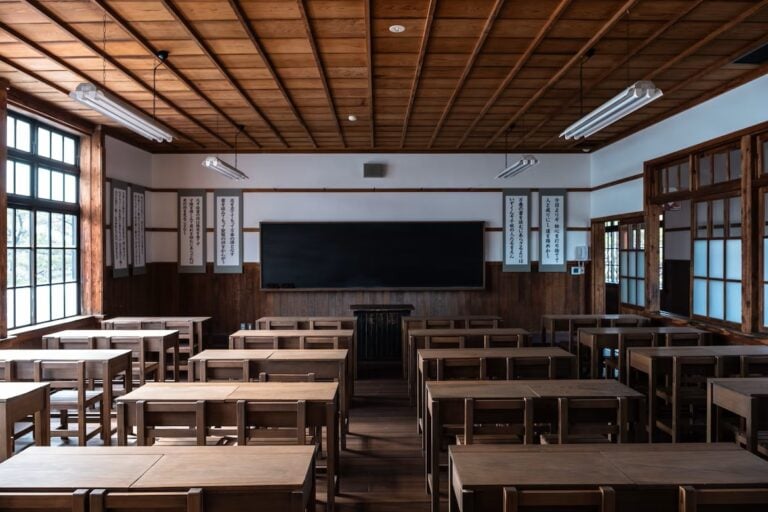
So you’ve finished college and are planning what you want to do next. Or perhaps you want to study a specific topic and have found the perfect university that happens to be in Japan. Or perhaps you want to continue your studies in a new environment to broaden your own horizon. Regardless of why you have decided to continue to graduate school in Japan, making the decision is only the beginning.
In this article I am focusing on the process of applying to Japanese graduate schools.
What things do I need?
Of course, every university has different requirements, so please look at the requirements for the university you want to apply to.
In general, the often most universities request the following requirements:
- Completed a bachelor’s degree (or equivalent) to an accredited institution and/or undergraduate studies from a Japanese university
- Have completed at least 16 years of education
- You academic abilities are equivalent to or exceed the level of university graduation (this is typically assessed through submitted documents, prior trainings, certifications, and entrance exams)
- You are at least 22 years of age
If you are applying for a doctoral program, you may also be required to have a master’s degree or an equivalent.
In addition, often if you are applying for a program in Japanese, the university will often request a proof of Japanese language ability (either through excerpts of your writing in Japanese or through language proficiency scores like the JLPT). However, even without Japanese language proficiency, there are plenty of programs in English you may choose to take.

What is a Research Plan or proposal?
When you enter graduate school, you will most likely have to conduct some form of research while you study. Masters program is about gaining mastery over a topic and thus research is a crucial way of doing so. Because of this, a research plan (研究計画書) is often required. Typically these plans require the following information:
- Purpose of your research (what is the important)
- Background (what research comes before your research and why is it important)
- Significance (why is it important and what will it provide for the world)
- Research method (how you will conduct the research)
- References, materials, etc. (essentially all the things you used while making the proposal)
- School-specific application form (this often has personal information and academic history)
- A bachelor’s degree certification (or equivalent)
- (If you haven’t graduated yet, they may require a letter from your current university certifying the anticipated graduation date)
- (For doctoral courses) A master’s degree certification (or equivalent)
- Academic transcriptions from prior schools attended
- Letters of references
- Graduate thesis and abstract
- Research plan
- Evidence of research experience (past academic conferences, publications, etc.)
When writing this plan, you ought to showcase why your research is important and why you care about it. The goal is to show your knowledge in your field, ability to choose a specific topic in said field, analyze the topic critically, and construct a study to answer an existing gap in research you find in your critical analyzation.
How do I find my School?
When looking for my graduate program, I was lucky to meet a very good supervisor early on in my undergraduate program, so finding the school and the advisor was quite easy. Perhaps for doctors who have clearer research plans and goals may have a harder time in this regard.
However, keep in mind when selecting a school both what the supervisor you want to study under as well as what the other professors and graduate students within the faculty have to offer? Your supervisor doesn’t have to necessarily have all of the experiences you want, but it’s important they can provide you the framework for your research and give valuable insight but remember you can collaborate with other students and professors in the faculty if there are places your professor can’t directly help.
One good way to gauge the over all faculty is to first read articles published by different members of the faculty (both graduate students and professors) and see if their methods and research lines up for what you might want to learn and do. Alternatively, you can read the different professors professional pages on the school’s website or contact school administration for advice.
From there you can reach out to professors that you think might be fitting for your research so that you can gauge their personalities and how well you get along. Remember, no matter how much an expert in a field a professor is, if you cannot communicate and get along, then you will be better off with a lesser-known name you do get along with.
The last tip is trying to speak to other students in the faculty to get their insight about the culture and community you might be studying with and to see how well you might be able to collaborate with other people outside of your you’re your supervisor alone.
While finding a supervisor before selecting your school is a good route, sometimes you can’t find a supervisor first. In this case, many schools will assign an advisor to you. So the best is to make sure you are clear on the specifics of your research (in your research plan), the reason you want to work in a specific department or with a specific person, and many letters of reference that are able to showcase whether or not you are a good fit for the program.

What documents do I need for application?
Like the requirements, every university and program may require different documents. Please contact your desired school to know their exact requirements when applying. However, in general most universities require the following documents:
In addition, you may be asked or recommended to start as a research student before formal admissions. This will allow you to a time period to adapt to the program as well as prove your research experience if you come from a non-Japanese institution. I personally am glad I entered my program first as a research student before entering graduate school because I was able to learn the systems before I had the stress of publications and required classes added on the transition.
Typically, these documents are required to be submitted through mail (for some reason Japanese universities still prefer paper documents). You may be asked to also provide the return postage and envelope with the application. If you’re accepted, they will send the acceptance letters and documents through the mail which is often a pain for waiting. Also be warned, they often require original documents instead of photocopies. This may be frustrating when mailing in transcriptions and your diploma.
When do I actually do the applications?
When applying, keep in mind Japanese school schedules are quite different from school schedules in America and Europe. Typically, Japanese school years start in March or April and continue until August when summer break occurs. Then the second semester starts around October and finishes in late January or early February.
Every university’s program has slightly different application timelines, so you should check their applications first. In my experience, the application period started in November and last through December. My entrance exam was then scheduled in early February (although this was for the international exams, the Japanese exams were earlier in the year). Then there were interviews after the entrance exam before admittance in March.

What are the exams and interviews?
As I mentioned before my entrance exam and interview were held in February. Japanese universities typically require an entrance exam (入学試験) and an interview.
After submitting your application documents, you will be screened. If accepted, you move onto the examination phase. For me, due to covid this phase was held as an online oral exam, but more than likely your university will request for you to come to campus in this phase and sit the entrance exam. One benefit to doing a research student program is you will already be living in Japan when you have to sit this exam instead of having to take the long trip across the globe just for a test.
If you pass the exam, you are then expected to conduct an interview. Like the exam, mine was held online due to COVID, but that is not very common. Likely it’s very close to the exam so you can do both in one trip.
I’ve submitted all my documents and have taken the exams, now what?
At this point you must wait for the decision. This is the worst part of the processes in my opinion because you just sit with uncertainty. If you are accepted, you will receive the acceptance letter through the mail as well as a document with orientation information and so on.
Once you receive acceptance, you can start the process of applying for your visa! Hopefully your university will be able to help you with this, but you will need to get your certificate of eligibility from the university and take it to the embassy to apply for your visa. Then you can start preparing for your life in Japan.



















